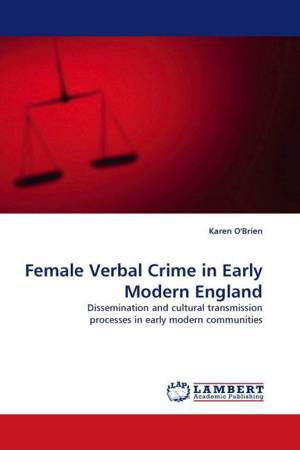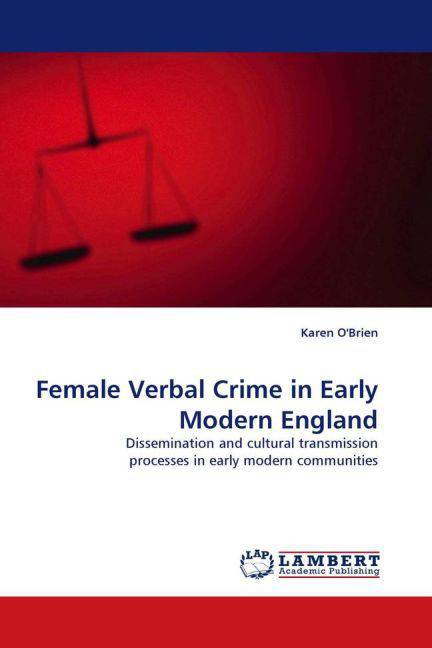
Je cadeautjes zeker op tijd in huis hebben voor de feestdagen? Kom langs in onze winkels en vind het perfecte geschenk!
- Afhalen na 1 uur in een winkel met voorraad
- Gratis thuislevering in België vanaf € 30
- Ruim aanbod met 7 miljoen producten
Je cadeautjes zeker op tijd in huis hebben voor de feestdagen? Kom langs in onze winkels en vind het perfecte geschenk!
- Afhalen na 1 uur in een winkel met voorraad
- Gratis thuislevering in België vanaf € 30
- Ruim aanbod met 7 miljoen producten
Zoeken
Female Verbal Crime in Early Modern England
Dissemination and cultural transmission processes in early modern communities
Karen O'Brien
Paperback | Engels
€ 77,95
+ 155 punten
Omschrijving
In early modern England women's words were greatly feared. What women said and how they said it held great power over communities. Formal cursing terrified its victims. People took legal measures to protect themselves and crimes of speech increased fourfold between 1580 and 1680. This research combines qualitative and quantitive analyses within a theoretical framework in a broad range of social, economic and gender contexts. It examines broadly in a regional study, verbal crime, criminal complaints, the dissemination of gendered ideas and cultural dissemination processes. It then presents a micro-history, exploring a period of civil unrest arising from gossip, cursing and rumour during 1660 to 1670 in Nantwich, Cheshire. Findings will interest those interested in crime, social, economic and gender history, medicine and families. The reader is respectfully invited to enter this fascinating world on this historical canvas as Nantwich townsfolk are brought to life as the intricacies of their lives and personalities unfold during an investigation of their actions and language.
Specificaties
Betrokkenen
- Auteur(s):
- Uitgeverij:
Inhoud
- Aantal bladzijden:
- 248
- Taal:
- Engels
Eigenschappen
- Productcode (EAN):
- 9783838328966
- Uitvoering:
- Paperback
- Afmetingen:
- 150 mm x 220 mm
- Gewicht:
- 345 g

Alleen bij Standaard Boekhandel
+ 155 punten op je klantenkaart van Standaard Boekhandel
Beoordelingen
We publiceren alleen reviews die voldoen aan de voorwaarden voor reviews. Bekijk onze voorwaarden voor reviews.









